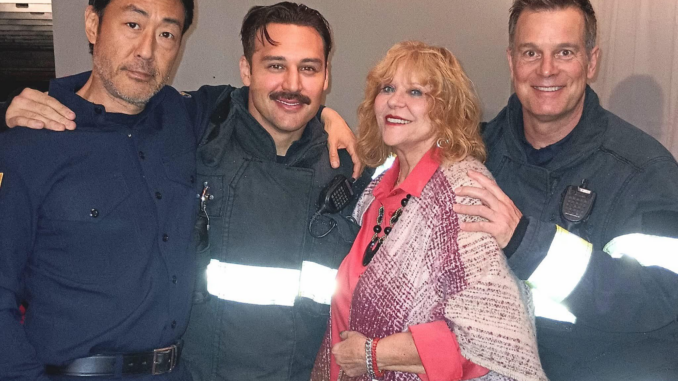
Have you ever wondered what happens after you dial 9-1-1? That split-second decision to call can mean the difference between life and death. Emergency responders work under immense pressure, making life-altering choices in real-time. But what really goes on behind the scenes?
This article takes you deep into the world of 9-1-1 emergency response, from the moment a call is made to the life-saving efforts of dispatchers, paramedics, and first responders.
The History of 9-1-1: How It All Began
Why Was 9-1-1 Created?
Before 9-1-1, calling for emergency services was a nightmare. People had to dial different numbers for police, fire, and medical assistance. In 1968, the first 9-1-1 call was made in Haleyville, Alabama, revolutionizing emergency response forever.
How the 9-1-1 System Evolved
Over the decades, technology improved, allowing dispatchers to pinpoint locations, handle multiple emergencies at once, and provide life-saving guidance before responders arrive. Today, we even have Enhanced 9-1-1 (E9-1-1), which automatically provides the caller’s location.
What Happens When You Dial 9-1-1?
Step 1: The Call Is Answered
A trained dispatcher picks up within seconds. Their job is to assess the situation quickly and calmly, even when callers are panicked.
Step 2: Determining the Emergency Type
Not all emergencies are the same. Dispatchers categorize calls into three main types:
- Medical Emergencies: Heart attacks, strokes, severe injuries, etc.
- Fire Emergencies: House fires, wildfires, gas leaks.
- Law Enforcement Needs: Crimes in progress, domestic violence, car accidents.
Step 3: Dispatching the Right Help
Once they understand the emergency, dispatchers send out police, firefighters, or paramedics, depending on the situation.
The Life of a 9-1-1 Dispatcher: Unsung Heroes
A Job That Requires Steel Nerves
9-1-1 dispatchers are the first line of defense in any crisis. They must remain calm while talking to terrified callers, guiding them through CPR, or handling hostage situations—all from behind a headset.
The Emotional Toll of the Job
Hearing people in their worst moments takes a toll. Many dispatchers experience PTSD, just like first responders in the field.
The Role of First Responders: Heroes on the Front Lines
Firefighters: More Than Just Fighting Fires
Firefighters don’t just put out flames—they’re trained in emergency medical response, search and rescue, and hazardous material incidents.
Police Officers: Risking Their Lives for Public Safety
From responding to active shooters to domestic violence situations, police officers are trained to de-escalate dangerous situations.
Paramedics & EMTs: The Difference Between Life and Death
Paramedics arrive at the scene prepared for anything—car crashes, gunshot wounds, overdoses, and more. Their fast action can be the difference between survival and tragedy.
Common 9-1-1 Emergencies & How to Handle Them
Heart Attacks & Strokes
If someone shows symptoms of a heart attack (chest pain, shortness of breath) or a stroke (facial drooping, slurred speech, confusion)—call 9-1-1 immediately.
Choking Incidents
Every second counts. If someone is choking, perform the Heimlich maneuver and call for help.
Car Accidents
Stay calm, check for injuries, and call 9-1-1. If it’s a minor accident, move vehicles to a safe location.
House Fires
Get out immediately! Never try to fight a fire yourself—leave it to the professionals.
What NOT to Do When Calling 9-1-1
Never Prank Call
Making fake emergency calls can delay response times for real emergencies. In many states, it’s a felony.
Don’t Hang Up If You Call by Mistake
If you dial 9-1-1 accidentally, stay on the line and let them know it was a mistake. Hanging up could result in emergency services being dispatched unnecessarily.
Avoid Giving Incomplete Information
Try to remain as clear as possible. Give the exact location, details of the emergency, and any crucial medical history of the person in distress.
Technology & the Future of 9-1-1
Text-to-9-1-1: A Lifeline for the Speech-Impaired
Many areas now allow you to text 9-1-1, which is useful for those who can’t speak or are in dangerous situations where speaking would put them at risk.
Smartphone Location Tracking
New advancements allow dispatchers to pinpoint caller locations more accurately, even if the caller is unsure of their whereabouts.
Artificial Intelligence in Emergency Response
AI is starting to assist 9-1-1 centers by analyzing distress patterns in voices and helping dispatchers determine the level of urgency.
How You Can Prepare for an Emergency
Teach Kids How to Call 9-1-1
Children should know how to dial 9-1-1 and provide their address and a description of the emergency.
Create an Emergency Plan
Make sure your family knows where to go in case of fire, how to exit the home, and where to meet outside.
Keep Emergency Contacts Handy
Aside from 9-1-1, have local non-emergency numbers and personal emergency contacts saved on your phone.
Conclusion
Dialing 9-1-1 is something most people never think about—until they have to. Whether it’s a heart attack, a car crash, or a break-in, knowing how the system works can make all the difference. Dispatchers, paramedics, firefighters, and police officers are the unsung heroes working 24/7 to keep us safe.
Next time you hear a siren, remember: someone’s life is being saved.
FAQs
1. What happens if I accidentally call 9-1-1?
Don’t hang up! Stay on the line and tell the dispatcher it was a mistake to prevent emergency responders from being dispatched unnecessarily.
2. Can I text 9-1-1 instead of calling?
Yes, in some areas, you can text 9-1-1, but calling is always preferred if possible.
3. What information should I give when calling 9-1-1?
Provide your exact location, the nature of the emergency, and any critical details (e.g., injuries, suspect descriptions).
4. What should I teach my child about calling 9-1-1?
Make sure they know how to dial, their home address, and what details to provide in an emergency.
5. Is there a penalty for prank calling 9-1-1?
Yes, prank calls to 9-1-1 can lead to fines, criminal charges, and even jail time in many states.
